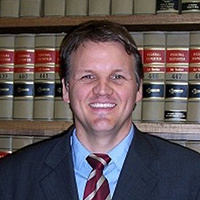Midnight Estate Lawyer, Mississippi
Heath S. Douglas
✓ VERIFIEDAccident & Injury, Business, Estate, Real Estate, Health Care
Heath is a Delta native, spending his childhood and young adult years in Cleveland, Mississippi. He grew up on a farm and was a farmer until he was th... (more)
Joel J Henderson
Accident & Injury, Workers' Compensation, Estate, Admiralty & Maritime, Car Accident
Status: In Good Standing Licensed: 50 Years


